Review by Tim Robins
WARNING: SPOILERS
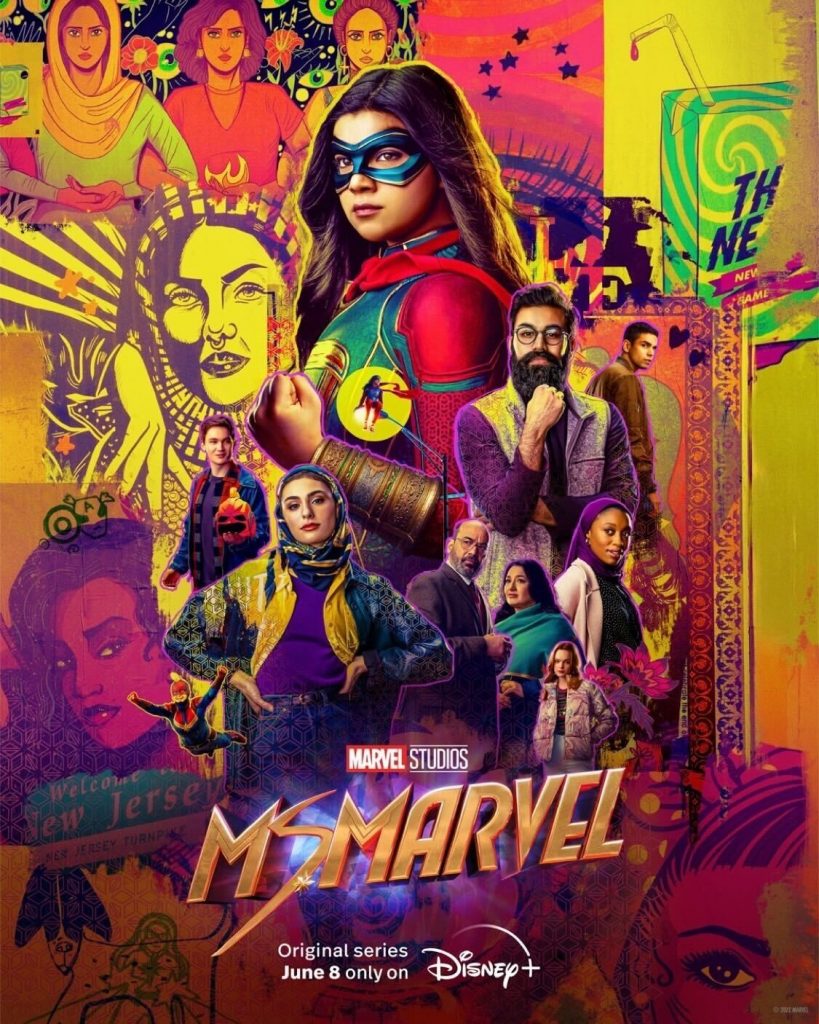
Ms. Marvel is a whole lot of fun, despite the fact the final episodes ditch much of what makes it fun in favour of familiar Marvel tropes: an energy beam fight, and a set-up for more Marvel products such as the X-Men, and the forthcoming MCU movie, The Marvels.
The Ms Marvel mini-series is based on the comic of the same name created by Eisner Award-winning writer Saladin Ahmed, novelist Gwendolyn Willow Wilson, and artist Adrian Alphona. It tells the story of 16-year-old Kamala Khan, a fan of Captain Marvel and The Avengers, who discovers a bracelet from her great grandmother that leads her on a quest to discover her family history and the realisation that she may be descended from an otherworldly race of Djinn known as the Clandestine. Khan’s adventures are played out against a background of family, friends and faith in a Pakistani-American, Muslim community.
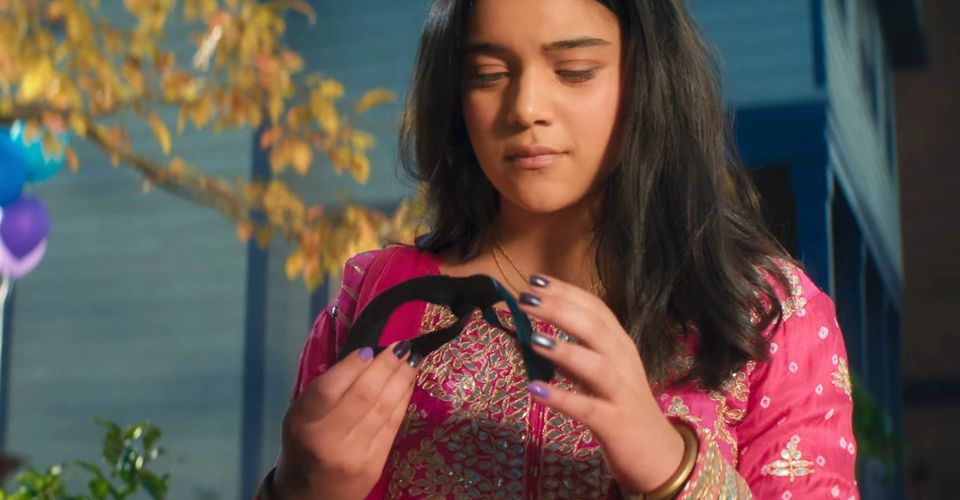
The TV adaptation has made significant changes to the comic, changes that seemed to be the basis of considerable negative fan reaction, but, it seems, much of this adverse reaction was a construct, utilising the technique of “meta-bombing”, an Internet phenomenon where a large number of people – or in other cases, a few people with multiple accounts – post negative user reviews. I checked out some of the one-star Ms Marvel reviews on IMDB and, suspiciously, many were from accounts set up two and a half years ago but the account holders had waited until now to write their first review. In addition, week-old accounts seemed set up purely to negatively review Ms Marvel. Most of these reviews from “sock puppet” accounts were written in the broken English, familiar from email scams.
That said, I was a little disappointed with some of the changes made to Ms Marvel. In the comic, Kahn gains her powers from The Inhumans’ Terrigen mists. But here, Khan’s abilities are manifested thanks to a ‘bangle’ she finds in a box belonging to her great-grandmother. Ms Marvel’s power is gifted by matrilineal descent from her mother’s side of her family, who hail from the extra-dimensional Noor Space. However, Khan may be an anomaly – a mutant with unique abilities not found in her family history.
All mention of the Inhumans has been expunged from Ms Marvel so, unlike the comic, we don’t get to see Khan romping around town with The Inhumans’ grotesque but adorable teleporting puppy, Lockjaw – a gigantic bulldog with a tuning fork on its forehead. A pity. Marvel Phase Four was designed to introduce more characters to the MCU and the Inhumans have characters aplenty. Then again, the Inhuman TV series was terrible, and Marvel only used the characters as pawns in a power struggle over intellectual property rights.
Then there are the changes to Ms. Marvel’s powers. In the comic, Khan is able to swell parts of her body to enormous proportions, a process Khan calls ‘embiggening’ after an errant verb introduced in The Simpsons. I guess Marvel Studios simply wasn’t ready for an American-Muslim with fists the size of Konga, so TV’s Ms. Marvel comes across as a mixture of Amethyst: Princess of Gemworld and Green Lantern. Khan’s bangle unleashes purple, crystalline shapes, by force of will. These also grant Ms Marvel a more comic-accurate silhouette as the series progresses.
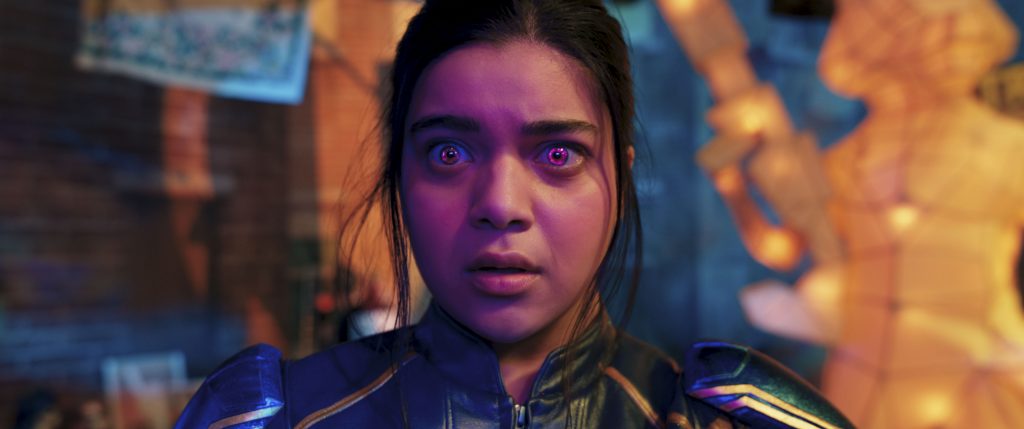
Some of the comic’s success rests on the shoulders of artist Alphona, who mixed a cartoony style reminiscent of Asterix and Tintin with a ‘painted’ colour wash. In contrast, the TV series incorporates animation and live action, a move that at least captures the comic’s illustrative energy, while dramatising Kahn’s young daydreams about becoming an Avenger like her idol – Captain Marvel (natch’). I would call this innovative, except including animation alongside live action seems to be this season’s big thing (see Season Three of The Boys and, to stretch the point, Hulu’s Only Murders in the Building).
As intended, the programme makers have translated the energy of the comic and the film Spider-Man: Into the Spider-Verse into a series that skews towards younger, diverse audiences. Although only 775,000 households watched Ms. Marvel in its first five days, a much lower figure than other Marvel shows, according to NME, Ms. Marvel scored the highest figures among viewers aged 20-24 with “Black, Hispanic and Asian households watching at a higher rate”. Ms Marvel is appropriately aware of the intersectional nature of identities. Much fun is had with the fact Kahn’s devout brother was once a Goth.

The tone of Ms Marvel’s first two episodes is also, intentionally, reminiscent of John Hughes comedies such as Ferris Buellers’ Day Off and Weird Science. There’s a kid gang feel to Kahn and her friends, old and new. Episode three features a Bollywood style chase through the streets of Karachi and the series concludes with the gang trying to outwit the show’s main antagonists – a rogue unit of “Damage Control”, a force set up to deal with the fallout from superhero fights. Kamala Khan’s friendship with a tech savvy school chum (played by Matt Lintz) captures the kind of nostalgia for teen relationships, something, admittedly, already being mined by Stranger Things.
The TV series is blessed with an excellent cast, tasked with bringing us a slice of desi life in America to a TV audience; desi being a name given to, specifically, persons of Indian, Pakistani, or Bangladeshi birth or descent who live abroad, in other words, a diaspora. The scenes with Kahn’s family are a high point of the series. They’re funny, touching and remarkably sophisticated in presenting a life seen through the lens of Muslim-American life.
It is worthwhile taking a moment to give voice to those Muslim critics who have found the series relatable to their own lives. In a handwritten letter posted on the Marvel Studios social media, picked up by various news outlets before the show launched, Nobel Peace Prize laureate and Pakistani activist Malala Yousafzai commented, “It is not every day that I turn on the TV and find a character who eats the same foods, listens to the same music or uses the same Urdu phrases as me.”
Via @malala
— Marvel Studios (@MarvelStudios) June 8, 2022
“It is not every day that I turn on the TV and find a character who eats the same foods, listens to the same music or uses the same Urdu phrases as me.” (1/2) pic.twitter.com/DY6hFq2NgM
These sentiments were echoed by media friendly IGN by journalist Unzela Khan. “In the first five minutes of the first episode I was caught by surprise, hearing the words ‘Bismillah’, ‘Allah Subhana-Wa-Tala’ and ‘Astaghfirullah’ in such a casual context…Small and accurate details like that really normalise and bring together a sense of the Muslim community in New Jersey, or in any Western country for that matter.”
Again, in Britain’s i newspaper, Nadeine Abali praised Ms Marvel’s representation of Muslim mothers: witty and warm, stern and cautious, queen of poignant one-liners and harbouring a tantalising backstory cloaked in secrecy and shame, Muneeba’s character does what so many portrayals of Muslim mothers on screen fail to do. She is a multi-faceted, nuanced woman in her own right. Not defined by her faith, culture or traditions, she proudly upholds her heritage.
Although these responses certainly mirror publicity talking points, they strike me as genuine and heartfelt. For Marvel Studios, producer Kevin Fiege described ‘relatability’ as the secret of Ms Marvel’s success.
“Alongside Peter Parker, Kamala Khan is one of our most relatable characters,” he commented. “She is a normal, fun kid thrust into a remarkably rich, new mythology that takes her to exciting places where she discovers truths about her past and family.”
I can’t say that I relate to Ms Marvel in the same way as these critics.
I confess, I am still taken aback by hearing the cry ‘Allahu Akbar!’ being used on TV in any context other than from the mouth of a terrorist. And, in form at least, the tensions between Kahn and her extended family appeared little different from those seen in films about Jewish or Sicilian communities.
As a Doctor Who fan, aspects of Ms. Marvel reminded me of Vinay Patel’s Doctor Who story, Demons of the Punjab, in which companion Yasmin Khan asks the Doctor to take her back in time to see her grandmother in her youth, leading the time travellers to become caught up in events around the partition of India. But, as much as I appreciate the subtleties of Patel’s ground-breaking story, when it comes to adventure and exciting SciFi, Ms. Marvel wins out hand over an embiggened fist.
Demons of the Punjab received a lot of presumptuous finger-wagging for daring to call Britain out over the disastrous partition of India, which the writer actually avoided. Ms Marvel is more robust in this respect. At a family dinner the conversation goes, “The British left us with a mess”; “Every Pakistani family has a Partition story and none of them are good”. But I guess it helps having a massive media marketing machine to promote your product, and I’m not sure the BBC had the money or will to positively spin one of Doctor Who’s more challenging seasons.
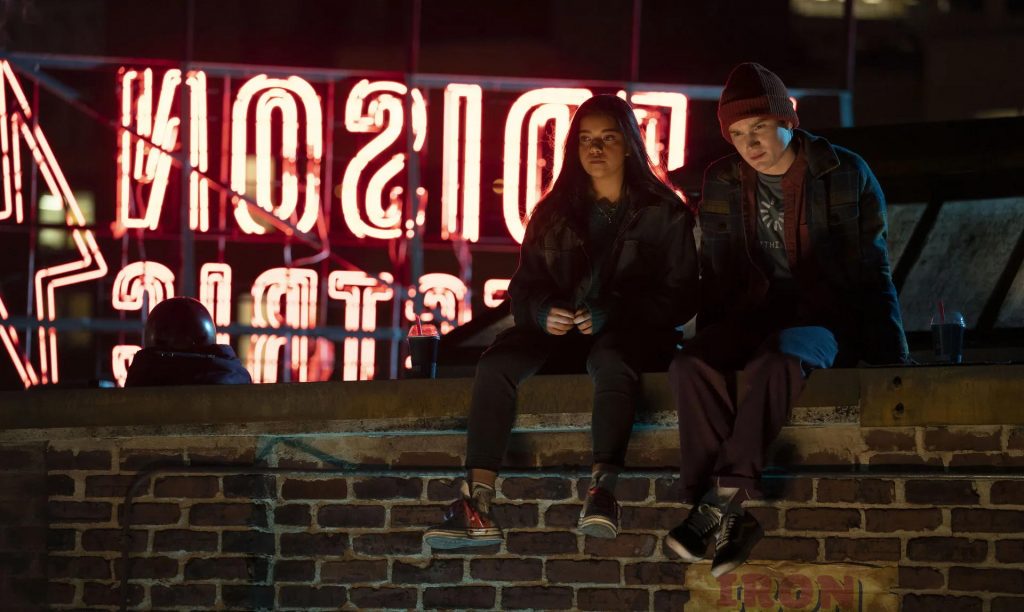
But, just as I was about to dismiss the concept of relatability, episode three of Ms Marvel saw Kahn travel with her mother to Karachi Airport to be greeted by Kamala’s grandmother. Having travelled to distant shores to be greeted by long believed lost family members, my bottom lip was twitching throughout these scenes. Damn you, Marvel! How can your shows pull such personal, emotional engagement out of your hat of stereotypes?
The elephant in the room, the ‘unsaid’ of Ms Marvel, is the sectional nature of Islam exemplified by the reaction to The Lady of Heaven (2021), a film written by Twelver Shia cleric Yasser Al-Habib, that relates a boy’s present day experience in an ISIS Caliphate to struggles around the founding of Islam. The film’s hostile reception in the UK included 200 Muslims protesting the film outside Cineworld in Broad Street, Birmingham and a petition signed by more than 126,000 people, demanding the movie to be removed from the big screen.
Some fans of Ms Marvel have fretted over her relationship to Islam. They have pointed to a brief mention, in the comic, of her brother Aamir being a Salafi, which is a branch of Sunni Islam. Others point out that the majority of Pakistani-Muslims are Sunni. That said, a post in a Reddit thread on the topic scolds the programme for not even to meet Islamic codes of conduct.
A list of the show’s transgressive acts included: talking in a mosque, not listening to her parents, having ‘magic’ powers, not respecting elder, not representing a true Muslim wedding and wrong saying partying in Islam is haram (forbidden).
The only way I can relate to such controversies is to remind myself that some Christians can also be pretty intolerant (see, for example, reactions to The Life of Brian, The Passion of Christ, and Benedetta. Sometimes, religions only offer us a choice of intolerances.
Tim Robins
• Ms. Marvel is streaming now on Disney+
Dear reader, a review is an opinion, not a statement of fact – other opinions are available, including yours
Ms. Marvel Comics
• More Ms. Marvel titles on AmazonUK (Affiliate Link) – by Publication Date
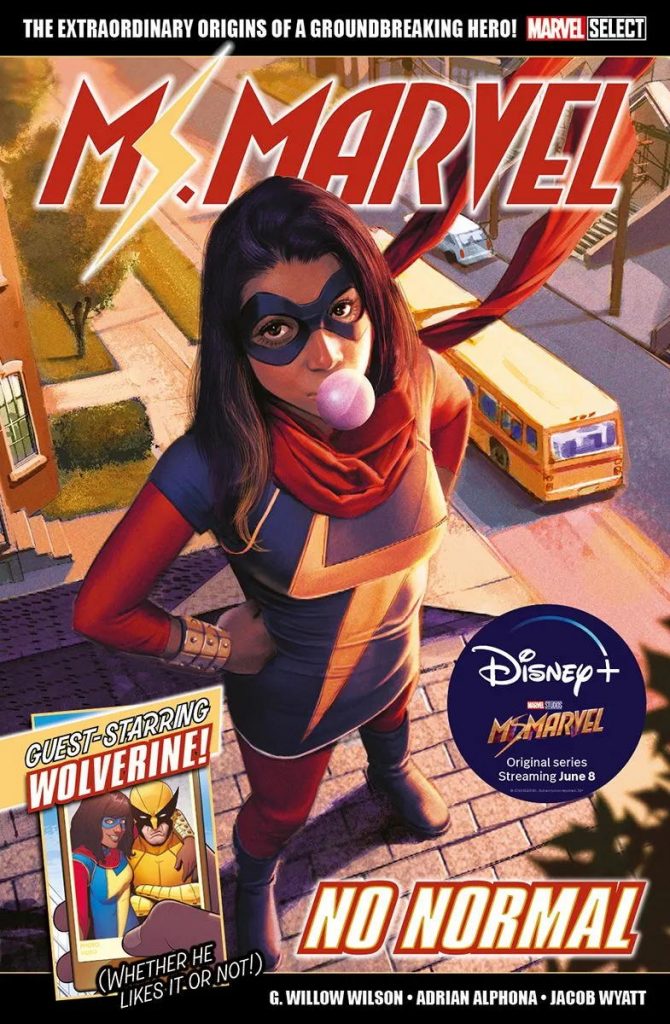
• Marvel Select – Ms. Marvel
Available in newsagents or direct from Panini UK | Buy it from AmazonUK (Affiliate Link)
Life’s not fair when you’re a 16-year-old Muslim girl from New Jersey. While her friends are out partying, the nearest Kamala Khan gets to fun is sitting in her room, writing super-hero fan fiction.
But her ordinary life is about to become extraordinary, thanks to the Terrigen Cloud granting her amazing powers. Inspired by her super-hero idols, Kamala stands ready to keep super-villain scum out of her neighbourhood as the all-new Ms. Marvel!
Collecting Ms. Marvel #1-7
• Magnificent Ms. Marvel Omnibus
The young super hero’s life is turned upside down as aliens are wreak havoc in Kamala’s corner of the world, and they seem weirdly interested in Ms. Marvel… and her family.
Collecting The Magnificent Ms. Marvel #1-12 and Ms. Marvel Annual #1
• More Ms. Marvel titles on AmazonUK (Affiliate Link) – by Publication Date
Web Links
• Screenrant: Malala Yousafzai Pens Emotional Letter To New MCU Hero Ms. Marvel
• IGN: Watching Ms. Marvel As A Muslim Woman
Journalist Unzela Khan shares her opinion on watching Ms. Marvel as a Pakistani Muslim woman
• Images: Ms. Marvel’s desi moments reflect the story of every brown teenage woman and I love it
Put aside your concerns of lack of accurate representation, says Marsha Tayyab, because the first episode is super relatable
• Forbes: Why ‘Ms. Marvel’ Viewership Is Reportedly Much Lower Than Other MCU Series
• CBR – Ms. Marvel Is the MCU’s Latest Series to Suffer Review-Bombing
By John Dodge
The latest entry in the MCU suffers from review-bombing, as Ms. Marvel is bombarded by irate “fans” and audience members online.
• Polygon: Ms. Marvel’s directors wanted their show to be “Into the Spider-Verse in live action“
The directors explain their sources, from John Hughes to Spike Lee to Adrian Alphona and Jamie McKelvie’s art
• HyperGeeky: Comic Review] Marvel Girl in a Big, Big World — Ms. Marvel #1
“Kamala Khan is a Pakistani Muslim teen raised and living in New Jersey who becomes Ms. Marvel. Why that would offend anyone is beyond me. The Marvel Universe itself is already loaded with gods and goddesses, Christians, Buddhists, atheists, and agnostics.”
A freelance journalist and Doctor Who fanzine editor since 1978, Tim Robins has written on comics, films, books and TV programmes for a wide range of publications including Starburst, Interzone, Primetime and TV Guide.
His brief flirtation with comics includes ghost inking a 2000AD strip and co-writing a Doctor Who strip with Mike Collins. Since 1990 he worked at the University of Glamorgan where he was a Senior Lecturer in Cultural and Media Studies and the social sciences. Academically, he has published on the animation industry in Wales and approaches to social memory. He claims to be a card carrying member of the Politically Correct, a secret cadre bent on ruling the entire world and all human thought.
Categories: Comics, Digital Media, downthetubes Comics News, downthetubes News, Features, Magazines, Other Worlds, Reviews, Television, US Comics
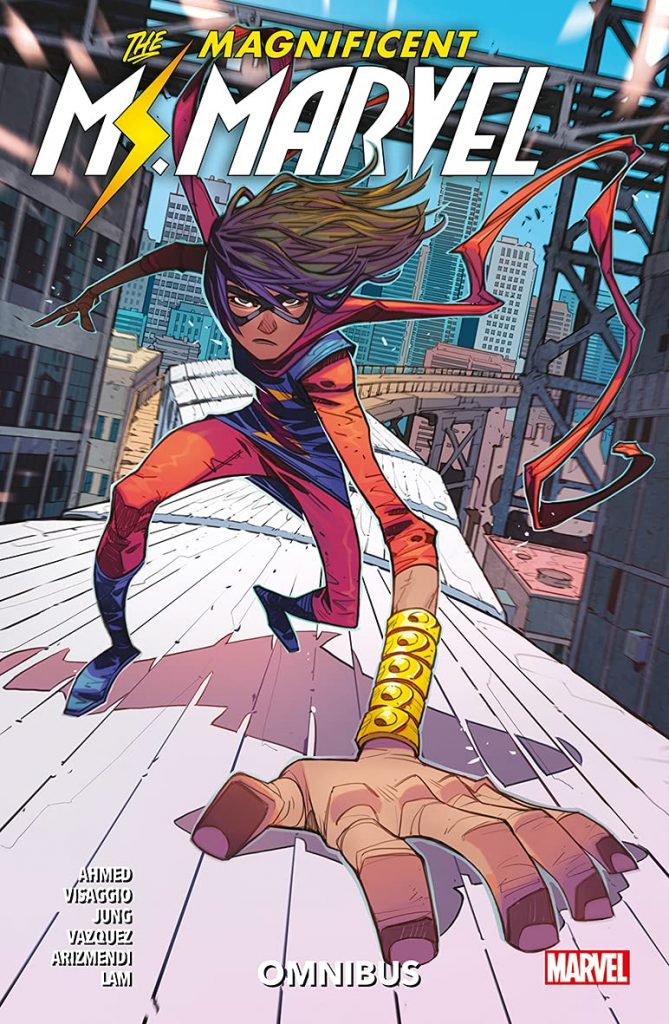
I was disappointed we haven’t yet found out the identity of the shoe thief.